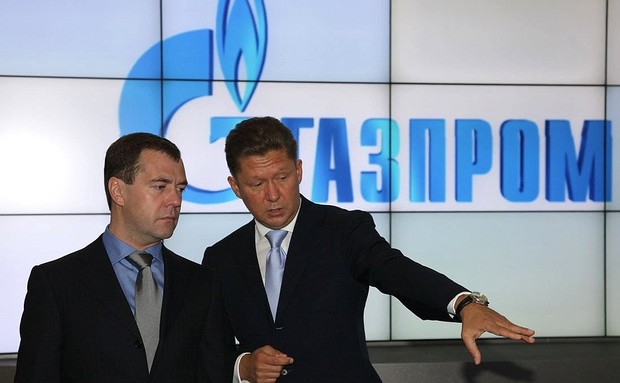Russia going to replenish budget through taxation changes
Gazprom will pay additional $520 million of mineral extraction tax in 2017
In order to replenish state coffers, the Russian government is considering various tax changes in the oil and gas industry. Although decisions on global changes have not been adopted yet, one of the industry's key players, Gazprom, will undergo an increase in taxes from the fourth quarter of 2017. The move will compensate an exemption from higher dividend payouts that the gas giant obtained last year.
On Thursday, the Russian government discussed proposed changes to the tax code envisaging an increase in both extraction and excise taxes for oil and gas producers, reports Reuters. The increase in mineral extraction tax (MET) for oil producers, which was earlier supposed to last until 2019, can be extended to 2020. The government is also considering an increase in excise taxes in line with inflation in 2020.
While there is no final resolution on these proposals, Prime Minister Dmitry Medvedev announced a firm decision on Gazprom, Russia's major gas producer. It was decided to raise MET on Gazprom from the fourth quarter of 2017. The increase will bring extra 30bn rubles ($520 million) of budget revenue this year. ''We count on the changes to bring additional 30bn rubles in 2017 and around 380bn rubles in 2020 to the budgets of all levels,'' said the prime minister. However, according to the draft changes in taxation, Gazprom will get lower MET in 2019 and 2020.

The Russian government continues seeking ways to cut persisting budget deficit caused by low oil prices. The Ministry of Finance's initial forecast for the 2017 budget deficit was 3,2% of GDP, but it lowered the planned annual shortfall in May to 2,1% due to expected higher revenues. Last year, oil, gas and other hydrocarbons accounted for 38% of the Russian budget.
Taxes are not the only way of replenishing the depleted Russian budget. Since 2016, the government has demanded state companies to pay out 50% of their net income in dividends. However, only five companies met the requirements last year. Such biggest payers as Rosneft, Gazprom and Transneft won exemptions. Rosneft agreed a 35% payment, Gazprom will pay 24% and Transneft – 9%. This year, the companies are eager to repeat the trick, and President Vladimir Putin has already publicly backed Gazprom's line that almost half of its IFRS profit for 2016 was only ''on paper'' caused by currency movements.